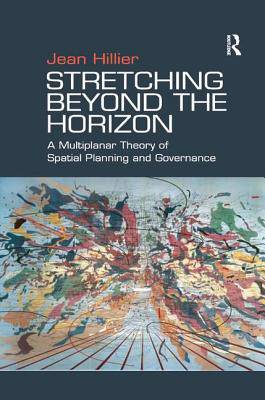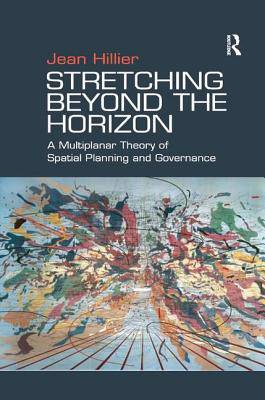
Door een staking bij bpost kan je online bestelling op dit moment iets langer onderweg zijn dan voorzien. Dringend iets nodig? Onze winkels ontvangen jou met open armen!
- Afhalen na 1 uur in een winkel met voorraad
- Gratis thuislevering in België vanaf € 30
- Ruim aanbod met 7 miljoen producten
Door een staking bij bpost kan je online bestelling op dit moment iets langer onderweg zijn dan voorzien. Dringend iets nodig? Onze winkels ontvangen jou met open armen!
- Afhalen na 1 uur in een winkel met voorraad
- Gratis thuislevering in België vanaf € 30
- Ruim aanbod met 7 miljoen producten
Zoeken
Stretching Beyond the Horizon
A Multiplanar Theory of Spatial Planning and Governance
Jean Hillier
Hardcover | Engels
€ 290,45
+ 580 punten
Uitvoering
Omschrijving
In this innovative work Jean Hillier develops a new theory for students and researchers of spatial planning and governance which is grounded primarily in the work of Gilles Deleuze. The theory recognizes the complex interrelation between place qualities and the multiple space-time relational dynamics of spatial governance. Using empirical examples from England and Australia, Hillier identifies the power of networks and trajectories through which various actors territorialize space and explores the social and political responsibilities of spatial managers and decision-makers. She considers what spatial planning and urban management practices could look like if they were to be developed along Deleuzean lines, and suggests alternative framings for spatial practice: broad trajectories or 'visions' of the longer-term future and shorter-term, location-specific detailed plans and projects with collaboratively determined tangible goals.
Specificaties
Betrokkenen
- Auteur(s):
- Uitgeverij:
Inhoud
- Aantal bladzijden:
- 410
- Taal:
- Engels
Eigenschappen
- Productcode (EAN):
- 9780754647492
- Verschijningsdatum:
- 25/04/2007
- Uitvoering:
- Hardcover
- Formaat:
- Genaaid
- Afmetingen:
- 156 mm x 234 mm
- Gewicht:
- 752 g

Alleen bij Standaard Boekhandel
+ 580 punten op je klantenkaart van Standaard Boekhandel
Beoordelingen
We publiceren alleen reviews die voldoen aan de voorwaarden voor reviews. Bekijk onze voorwaarden voor reviews.











